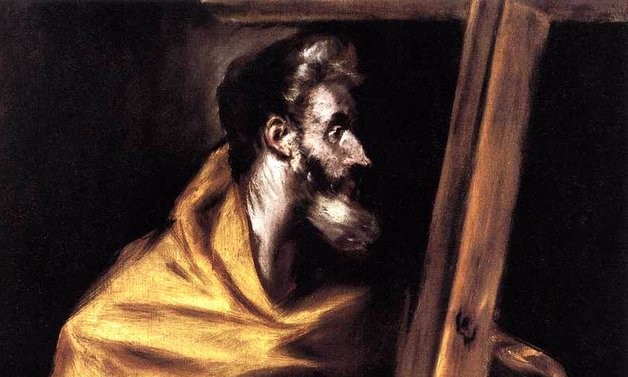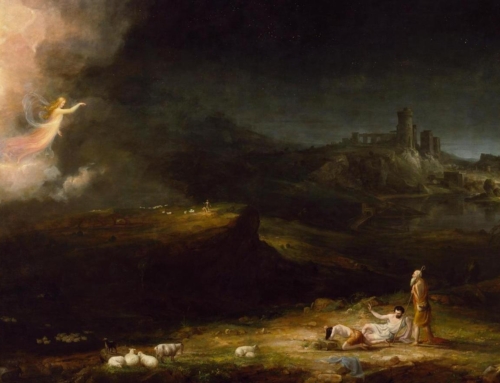Jesus said to him, “Have I been with you for so long a time and you still do not know me, Philip? Whoever has seen me has seen the Father. How can you say, ‘Show us the Father’? Do you not believe that I am in the Father and the Father is in me? The words that I speak to you I do not speak on my own. The Father who dwells in me is doing his works. Believe me that I am in the Father and the Father is in me, or else, believe because of the works themselves” (Jn 14:9-11).
This excerpt from the Gospel of today’s feast of the holy Apostles Philip and James packs quite a punch. Jesus at once rebukes Philip for his lack of faith and instructs his disciples of the Father-Son relationship in the Trinity. He reveals to them that He and the Father are One and that it is truly the Father who is speaking to them. He even explains that it is really the Father who is the principle of His works.
Many of us can identify with Philip’s request: if God would just reveal Himself, if He would just make Himself known somehow to our bodily senses, our faith would be perfected. We would have no reason to doubt. It would even be an opportunity to give all those smug atheists the what for!
Oh we of little faith! The life of the Holy Trinity is a true mystery: the Son dwells in the Father and the Father in the Son, and the Holy Spirit proceeds from them both together as from a single source. This mystery is only accessible to our minds as an object of faith. We read in Hebrews 11:1 “Faith is the realization of what is hoped for and evidence of things not seen.” Again in the Gospel of John, Jesus tells the woman at the well, “But the hour is coming, and is now here, when true worshipers will worship the Father in Spirit and truth; and indeed the Father seeks such people to worship him. God is Spirit, and those who worship him must worship in Spirit and truth.” (Jn 4:23-24). We can’t see spiritual things, but we can have faith that they exist and that they are true.
In Jesus’ “High Priestly Prayer,” found in the Gospel of John a few chapters later than those above, we hear our Lord give a fuller account of the inner life of God and the life of God in man:
Lifting up his eyes to heaven, Jesus prayed saying: “Holy Father, I pray not only for them, but also for those who will believe in me through their word, so that they may all be one, as you, Father, are in me and I in you, that they also may be in us, that the world may believe that you sent me. And I have given them the glory you gave me, so that they may be one, as we are one, I in them and you in me, that they may be brought to perfection as one, that the world may know that you sent me, and that you loved them even as you loved me… I made known to them your name and I will make it known, that the love with which you loved me may be in them and I in them.” (Jn 17:20-23, 26).
What an incredible mystery! But how are we to make any sense of it? One of the most powerful readings of these passages reveals what the truly Christian life is: the life of Christ Himself. St. Paul’s mysterious remark to the Colossians now begins to take shape. He says in his letter that, “…in my flesh I am filling up what is lacking in the afflictions of Christ on behalf of his body,” and that the labors of his ministry are “in accord with the exercise of his power working within me” (Col 1:24, 29). When we seek to conform our lives to Christ by living in accord with His Church and take the steps laid out for us by all those many saints who went before us, we truly become men and women of the Gospel. Our lives are transformed not by our exterior machinations, but by the inner principles of grace and of Jesus Christ Himself. We are actually changed and given divine life!
In baptism we die with Christ, we lay our life in Christ’s tomb as we are submerged under the waters, and when we arise, the spark of life that animates us is no longer that mortal, human life that was ours at birth, but becomes the unquenchable flame of God which animated Jesus Christ Himself. Again, as St. Paul writes to the Galatians, “I have been crucified with Christ; yet I live, no longer I, but Christ lives in me” (Gal 2:19b-20a).
✠
Image: El Greco, Apostle St. Philip







